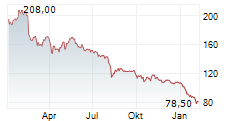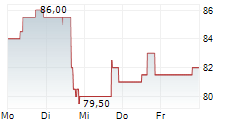
NORTHAMPTON, MA / ACCESSWIRE / May 23, 2024 / GoDaddy
Originally published on GoDaddy Resource Library
By Brenda Barron
Do you ever feel like a fraud, despite all the success and recognition that you have achieved? Do you worry that one day everyone will realize just how unqualified you are for your job or position? If so, then you may be experiencing impostor syndrome.

Impostor syndrome is an internal feeling of insecurity and self-doubt which can have major impacts on both your personal and professional life. It can cause mental health problems like anxiety, depression, or could even paralyze you with fear when faced with challenges.
Fortunately, there are steps you can take to overcome this condition and build your confidence again. Today, we'll explore what impostor syndrome is, its symptoms and effects, as well as ways to combat it effectively.
This post also includes insights from entrepreneurs who've graduated from Empower by GoDaddy, our global social impact program, equipping entrepreneurs in underserved communities with training, tools and peer networks to accelerate their journeys.
Let's define impostor syndrome
Impostor syndrome, also called impostor phenomenon or impostorism by some, is a psychological issue in which individuals are plagued with self-doubt and insecurity despite their successes. Despite the evidence of accomplishment, they feel unable to accept credit for it.
"The cost can be high if you give in to the doubt. Opportunities cannot be gained if you don't own and believe that you are not an imposter. It can prevent you from gaining more experience or even trying. I've often felt like an imposter but instead of giving up or not trying, I did try. The things I didn't know, I learned and kept moving forward. You make your reality. If you adopt the aspects of the imposter mindset, I feel that then becomes your reality."
- Chong Mi Land, Owner of Land of Moon and Empower by GoDaddy graduate (San Diego, CA)
Impostor Syndrome is marked by a sense of inadequacy and hesitancy, leading to distressing mental states. Those affected are often unable to recognize the part their own capabilities have in their successes, instead attributing it mostly to luck or external factors. There's an overall sense of phoniness about one's abilities.
And it's not an uncommon occurrence. According to a review of numerous studies conducted by the National Library of Medicine, anywhere from 9 to 82% of those surveyed experience impostor syndrome or symptoms that could be best described as such.
Likewise, Psychology Today reports that up to 70% of adults might experience "impostorism" at some point in their lives, indicating the prevalence is quite high across all groups.
"I believe that imposter syndrome can be a barrier to achieving your full potential. Giving in to the falsehoods perpetuated by that inner critical voice can hinder the growth of your self-esteem. Personal growth often arises from learning through trial and error, and if we become fixated on our mistakes, we may miss the opportunity to turn today's successes into even greater achievements tomorrow."
- Tanika Nelson, Owner of Nika's Cupcake Bar and Empower by GoDaddy graduate (Baltimore, MD)
It's important to note that having impostor syndrome does not mean you are not capable or talented; it simply means you are struggling to recognize your own worth and achievements.
The good news is that there are ways to cope with impostor syndrome and build self-confidence. But more on that in just a bit.
The history of impostor syndrome
Impostor syndrome has been around for decades, but only recently has it become a widely discussed phenomenon. In 1978, psychologists Pauline Clance and Suzanne Imes coined the term "Impostor Syndrome," a phenomenon in which individuals with proven successes still feel inadequate or fraudulent. Since its inception, impostor syndrome has been intensely examined and is now acknowledged as an ordinary occurrence among high achievers.
The 5 types of impostor syndrome
There are five distinct types of impostor syndrome according to Valerie Ed.D, author of a book intended for high achieving women called, "The Secret Thoughts of Successful Women: Why Capable People Suffer from the Impostor Syndrome and How to Thrive in Spite of It." These types are centered around a variety of personality traits and include the Perfectionist, the Superhero, the Natural Genius, the Soloist, and the Expert.
The Perfectionist
This best describes someone who sets impossibly high standards for themselves and feels like they can never measure up to them. They may feel like they need to be perfect in order to be accepted or successful and put in countless hours of hard work. However, it's often never enough and this approach to life can lead to serious burnout.
The Superhero
The Superhero is someone who takes on too much responsibility and puts pressure on themselves to do everything perfectly. They may feel like they need to do it all in order to be successful.
The Natural Genius
Now, this type is someone who believes that success comes easily for others but not for them. They may feel like they don't have what it takes to succeed and that their accomplishments are due to luck or external factors rather than their own abilities. This can create a low sense of self-worth.
The Soloist
Also referred to as The Rugged Individualist, this type describes someone who believes that they must do everything alone in order to succeed. They may feel like asking for help will make them look weak or incompetent.
The Expert
Lastly, there's The Expert, or someone who believes that they must know everything in order to be successful. They may feel like they need to constantly prove themselves in order to be accepted or to get ahead.
No matter which type of impostor syndrome you identify with, it's important to remember that you are capable of achieving your goals and dreams without having to live up to impossible standards set by yourself or others around you. Recognizing your strengths and weaknesses can help you build confidence in yourself so that you can achieve success without feeling inadequate or fraudulent about it.
What causes impostor syndrome?
Impostor syndrome is thought to be caused by a combination of different factors such as perfectionism, unrealistic expectations, lack of self-confidence, and the pressures of success. It can also be triggered by experiences of failure or criticism.
Additionally, certain social and cultural norms may contribute to the development of impostor syndrome. For example, in some communities, there is a strong emphasis on academic success or perfectionism that can lead to feelings of inadequacy.
College students - both undergraduate and graduate students - are often under an immense amount of pressure to perform. Securing a new job in a high-pressure field can bring on impostor feelings, too.
Ultimately, impostor syndrome is caused by a combination of internal and external factors that make it difficult for individuals to recognize their own achievements and capabilities. It's important to be aware of these factors in order to take steps to manage and overcome impostor syndrome.
Symptoms of impostor syndrome
The impostor phenomenon can manifest itself in a variety of ways. According to Verywell Mind, some of these ways include:
- Feeling like a fraud or an impostor.
- Constant fear of being exposed as a fraud.
- Believing that any success is due to luck rather than personal ability
- Refusal to accept compliments or acknowledgements of accomplishment
- Self-doubt and lack of confidence in one's abilities
- Perfectionism and an inability to complete tasks or projects
- Feeling like one needs to do everything alone in order to succeed
- Fear of failure or taking risks
- Difficulty celebrating successes, even small ones.
- Sensitivity to criticism
Individual experiences may vary, but the above is generally considered to be the basic symptoms of this mindset.
How to deal with impostor syndrome
The good news is that impostor syndrome can be managed and even overcome with the right strategies.
Self-doubt is a natural thing. When we see other people doing great things it's easy to be in awe of that and compare ourselves to the very best. I think we do set the bar high for ourselves and even if we meet that bar, it is constantly moving higher. Imposter syndrome is a very real thing that affects many people for various reasons. I've often had these feelings of wondering if what I'm producing is good enough or if I'm working hard enough due to the bias against my gender and race.
- Chong Mi Land
It's important to recognize that you are not alone in feeling this way, and it does not reflect your true capabilities or achievements. The following strategies may help you to manage and overcome impostor syndrome:
- Acknowledge your feelings. It's important to recognize that these feelings are real and valid, even if they don't reflect reality.
- Develop self-compassion. Talk to yourself with kindness and understanding rather than criticism.
- Practice positive self-talk. Remind yourself of your accomplishments and strengths rather than focusing on your failures or weaknesses.
- Set realistic goals. Break down large tasks into smaller, achievable steps and focus on your long-term well-being, not just the short-term ability to push yourself to the brink.
- Celebrate small successes. Recognize and reward yourself for even the smallest accomplishments.
- Reach out for help. Seek feedback and support from those around you. Speaking with your mentors, in particular, can be helpful for recognizing your own personal growth, according to the American Psychological Association. Opting for therapeutic intervention and speaking with a mental health professional can be helpful as well.
- Prioritize self-care. Make time to relax, recharge, and take care of yourself.
By recognizing your feelings and taking steps to manage them, you can build confidence in yourself and achieve success without feeling fraudulent or inadequate.
I believe many entrepreneurs may struggle to fully embrace the recognition of their achievements because this challenge often stems from our initial motivations, which tend to be rooted in selflessness. We typically embark on our entrepreneurial journeys because we observe a need or possess a heightened sense of awareness, crafting our endeavors from those convictions. Consequently, when accolades and praise begin to pour in for work, as we never sought acknowledgement, it can feel foreign to us. While the recognition is undoubtedly well-deserved, it may take time for us to truly acknowledge and appreciate it.
- Tanika Nelson
With the right strategies, anyone can overcome impostor syndrome and reach their full potential in a healthy way.
Closing thoughts on impostor syndrome
Impostor syndrome is a real phenomenon that can be debilitating, but it doesn't have to be. It's important to recognize the signs and take steps to manage and overcome the feelings associated with it. By acknowledging your achievements and strengths, developing self-compassion, and celebrating small successes, you can move past the feeling of being a fraud or impostor and achieve success with confidence.
Remember: everyone has doubts and moments where they compare themselves to others-it's natural. But you are capable of achieving your goals and dreams without having to live up to impossible standards set by yourself or others.
Disclaimer: This content is provided for informational purposes only, and should not be construed as legal advice from GoDaddy on any subject matter.
View additional multimedia and more ESG storytelling from GoDaddy on 3blmedia.com.
Contact Info:
Spokesperson: GoDaddy
Website: https://www.3blmedia.com/profiles/godaddy
Email: info@3blmedia.com
SOURCE: GoDaddy
View the original press release on accesswire.com




